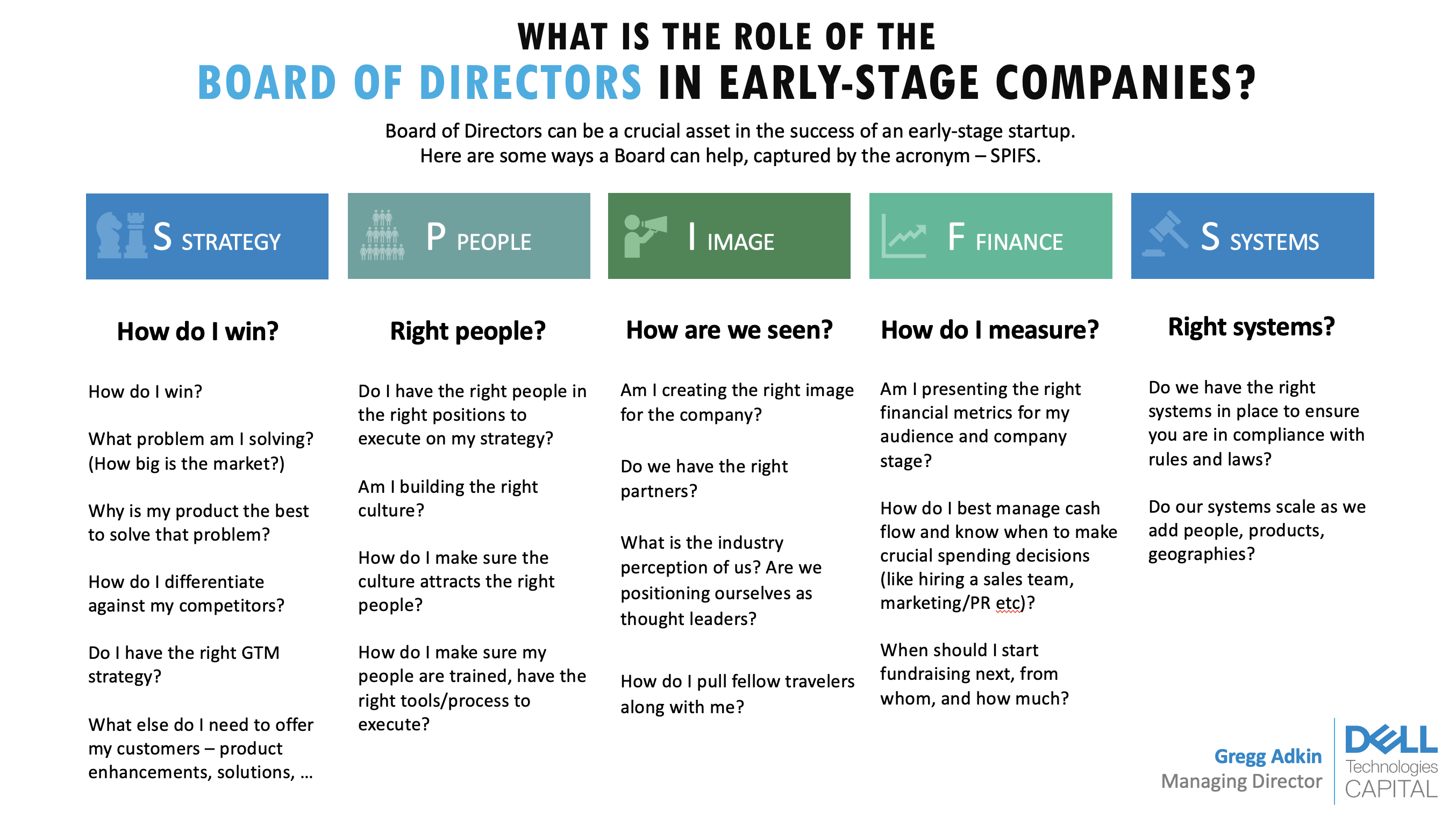Business
What’s the board’s role in an early-stage startup?

A framework for driving success

What’s the board’s role in an early-stage startup?
Startup founders frequently ask me about the role of a board of directors. A board can be a crucial asset in an early-stage startup.
Here’s a framework for how it can help drive success at your company: Strategy, People, Image, Finance and Systems for compliance, or “SPIFS.”
What is a board of directors, anyway?
The board of directors helps with governance of the company. U.S. law requires that any company have one, though does not require how big it should be. By generic definition, the board of directors consists of elected individuals that represent shareholders. It is the governing body that provides company oversight and helps set business policy and strategy.
On a more practical level and in a startup environment, the board can aid in creating a successful business strategy, putting together the right management team, developing branding, building good financial habits, and avoiding legal and compliance issues. The needs and composition of the board will change depending on the startup’s stage, management and financing history (e.g., if there are preferred shareholders, investors that require a board seat and more).
Investors often ask founders about their board: It says a lot about their character, their judgment and their willingness to be challenged.
Investors often ask founders about their board for two reasons. First, it says a lot about their character, their judgment and their willingness to be challenged. The founder can typically choose who is on their board (through careful selection of investors and advisers) and negotiate a board structure they prefer.
Typically, a healthy board will have a good balance between common shareholders, preferred shareholders and independents. It also helps investors and analysts understand who will ask critical questions and give important advice to the company’s executive management, especially when the going gets tough (it inevitably does!).
What exactly can a board help you do?
After 20 years as a venture capitalist and board member, I boiled down the value of a board into five main pieces under the acronym SPIFS: Strategy, People, Image, Finance and Systems for compliance.

Image Credits: Dell Technologies Capital
Strategy
Setting business strategy is one of the main ways that the board helps founders, especially if it’s their first time running a business. It is a valuable sounding board for validating that you have taken a sober account of the market and have the right plan to develop your product and acquire customers.
The board should ask these questions when guiding founders through setting strategy:
- How do I win?
- What problem am I solving?
- Why is my product the best to solve that problem?
- How do I differentiate against my competitors?
- Do I have the right go-to-market strategy?
-

 Entertainment6 days ago
Entertainment6 days agoIf TikTok is banned in the U.S., this is what it will look like for everyone else
-

 Entertainment6 days ago
Entertainment6 days ago‘Night Call’ review: A bad day on the job makes for a superb action movie
-

 Entertainment6 days ago
Entertainment6 days agoHow ‘Grand Theft Hamlet’ evolved from lockdown escape to Shakespearean success
-

 Entertainment6 days ago
Entertainment6 days ago‘September 5’ review: a blinkered, noncommittal thriller about an Olympic hostage crisis
-

 Entertainment6 days ago
Entertainment6 days ago‘Back in Action’ review: Cameron Diaz and Jamie Foxx team up for Gen X action-comedy
-

 Entertainment6 days ago
Entertainment6 days ago‘One of Them Days’ review: Keke Palmer and SZA are friendship goals
-

 Entertainment3 days ago
Entertainment3 days ago‘The Brutalist’ AI backlash, explained
-

 Entertainment3 days ago
Entertainment3 days agoOnePlus 13 review: A great option if you’re sick of the usual flagships
















